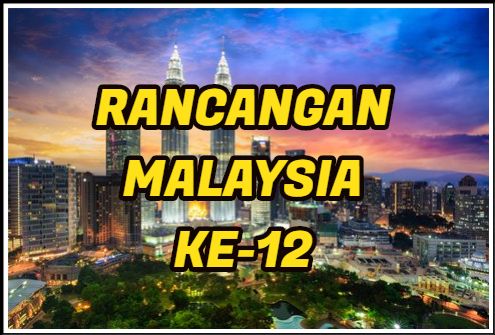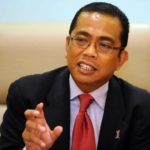KUALA LUMPUR, Sept 27 – Prime Minister Datuk Seri Ismail Sabri Yaakob today tabled the 12th Malaysia Plan at the Dewan Rakyat, mainly aimed at reviving the national and people’s economy.
With RM400 billion allocated for new and existing projects, it is the country’s biggest five-year road map, which is 54 per cent bigger than the 11th Malaysia Plan unveiled in 2016 that had set aside RM260 billion.
The new plan, which has been delayed by more than a year due to the Covid-19 crisis, aims to turn Malaysia into a high-income economy by 2025, eradicate abject poverty and increase the contribution of small businesses to the total economic output.
The premier said on Monday that several key goals of the 11th Malaysia Plan, which ended last year, had not been met due to the coronavirus’ impact on the economy in 2020.
The new plan with the theme “Prosperous, Inclusive and Sustainable Malaysia” will have nine main areas of focus. Key among them is putting the economy back on a growth trajectory following the negative impacts of Covid-19.
The plan also pays special attention to closing the income gap and development in some of Malaysia’s least-developed states such as Sabah and Sarawak.
The average annual growth of Gross Domestic Product (GDP) under the 11th Malaysia Plan was 2.7 per cent, lower than what was targeted, due to the contraction in 2020, he said. Malaysia’s economy contracted by 5.6 per cent last year, the worst contraction since the 1998 Asian Financial Crisis.
Bank Negara Malaysia had last month revised the country’s 2021 GDP growth forecast to a more modest 3 per cent to 4 per cent, compared with a 6 per cent to 7 per cent growth initially targeted by the government at the start of the year.
As part of the goals for a high-income economy, the premier has set a target for the average household income to reach about RM10,000 a month by 2025, an increase of around 40 per cent over the current average of RM7,160.
His administration is also targeting to increase the contributions of micro, small and medium-sized enterprises to 45 per cent of GDP, up from 38.2 per cent last year.
Ismail said the government’s policies will continue to be geared towards recovery this year and next, with economic growth expected to be back on track from 2023. The plan is expected to be voted upon on Oct 7, after a week of debates and replies from the relevant ministries.
It was tabled just more than a month after Ismail was sworn in as Malaysia’s ninth premier and its third in just three years.
It also comes two weeks after he signed a historic bipartisan agreement with the main opposition bloc Pakatan Harapan to carry out certain reforms, with the coalition committing to not block major legislation in Parliament such as the upcoming federal budget.
The prime minister leads a loose alliance of 114 MPs on the government bench, giving him only a four-seat majority in the 222-seat Parliament, where two seats are vacant. He leads the same government as his predecessor Tan Sri Muhyiddin Yassin, who resigned last month after several MPs pulled their backing for him, resulting in him losing his single-digit majority.
The 12th Malaysia Plan was supposed to be tabled in August last year by Muhyiddin’s administration but was delayed by more than a year as the country’s initial success in dealing with Covid-19 withered away.
Ismail also calls for all parties to close ranks and work together for the benefit of the nation, especially the people.







